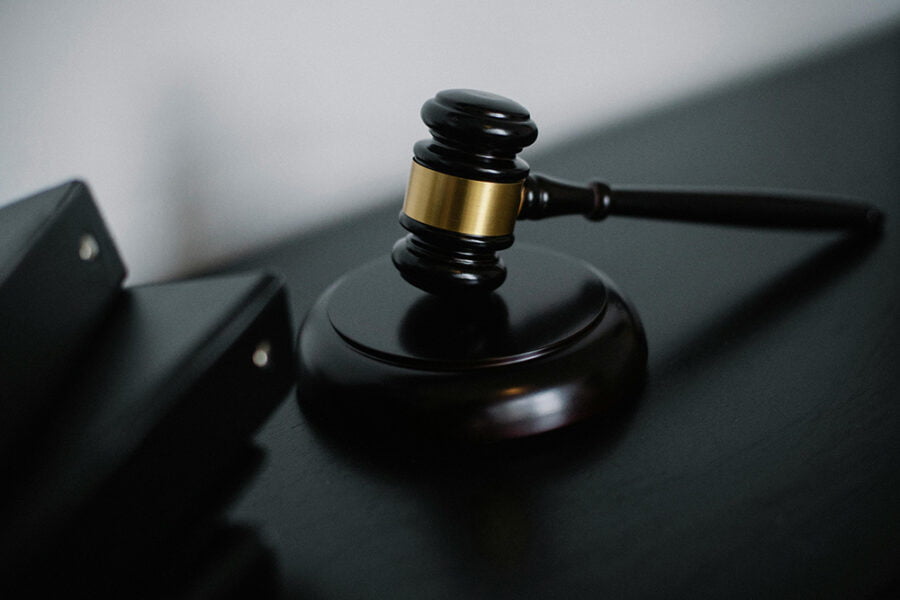Federal and Pennsylvania state courts treat narcotics dog searches differently. So different that the same scenario could result in different outcomes in federal versus state court.
For example, a Philadelphia resident is pulled over for speeding. During the traffic stop, a narcotics officer arrives on the scene with a drug dog who sniffs the car and alerts the officers to drugs in the trunk. The officers search the trunk and find multiple pounds of marijuana. The driver is arrested and charged with drug dealing. The success of the individual’s motion to suppress the drug evidence found in the trunk depends on whether federal or state constitutional law applies, as well as whether the officers had reasonable suspicion (or consent) to conduct the dog search.
Drug cases accepted in Philadelphia, Delaware County, Chester County, Montgomery County & Scranton/Lackawanna County. FREE CONSULTATIONS (215) 564-0644
Under federal law, dog searches are not considered a search under the 4th Amendment in the U.S. Constitution. So, a dog sniff during a normal traffic stop is legal. However, in a recent U.S. Supreme Court case, Rodriguez v. U.S. (2015), the Court held that extending a traffic stop to call and wait for a narcotics dog requires at least reasonable suspicion of criminal activity. Read more about federal drug charges after traffic stops with narcotics dog searches.
PENNSYLVANIA (STATE) DRUG CHARGES AFTER DOG SEARCHES
When it comes to law enforcement use of narcotics dogs to conduct drug searches, Pennsylvania law differs significantly from federal law. Since the late 80’s, the Pennsylvania Supreme Court has ruled that dog sniffs are searches which trigger constitutional issues in the following scenarios:
- dog sniff of a storage locker
- dog sniff during a traffic stop
- dog sniff during a traffic stop where consent was given
- dog sniff of a person
DOG SNIFF OF A STORAGE LOCKER
In a 1987 case, Commonwealth v. Johnston, the Pennsylvania Supreme Court held that the canine search there (outside a storage locker) constituted a search under constitutional law. The court held that dog searches are only allowed under state law if the police, at a minimum, have reasonable suspicion to believe that drugs are present in the area being sniffed by the dog. The court realized that dog sniffs are distinct from searches conducted by human officers. Dogs can obviously sniff drugs that the human nose cannot.
DOG SNIFF DURING A TRAFFIC STOP
The Johnston case involved a dog sniff of a storage locker. What about dog sniffs during traffic stops? In PA state court cases, the same principle applies to all physical locations. Police officers must have, at a minimum, reasonable suspicion that drugs will be found in the area being sniffed by the dog. See Comm. v. Rogers (2004), where the PA Supreme Court upheld the lower court’s finding that a dog sniff of a car during a traffic stop was allowed so long as the officer had reasonable suspicion of criminal activity.
DOG SNIFF DURING A TRAFFIC STOP WHERE DRIVER CONSENTS TO SEARCH
In a 2018 PA Supreme Court case, the court held that during a traffic stop, a driver who consents to search of their vehicle does not automatically consent to a canine search that’s conducted 40 minutes later. See Comm. v Valdivia. However, the court noted that if the officer informed the individual, before they gave consent, that a narcotics dog would be arriving, and the driver still consented, the consent would be valid.
DOG SNIFF OF A PERSON
In Comm. v. Martin (1993), the PA Supreme Court held that a canine sniff of a person requires not just reasonable suspicion, but a higher burden, probable cause, “the police must have probable cause to believe that a canine search of a person will produce contraband or evidence of a crime.” The Martin court found that a dog sniff of a person is much more invasive than a dog sniff of a location or thing (like a car), both of which only require a showing of reasonable suspicion.
FACING DRUG CHARGES AFTER A DOG SEARCH?
If you are facing drug possession or drug dealing charges after a dog search, contact our Philadelphia criminal law firm for a FREE consultation. David S. Nenner has over 30 years of experience representing clients in major felony cases including drug and gun cases. (215) 564-0644

